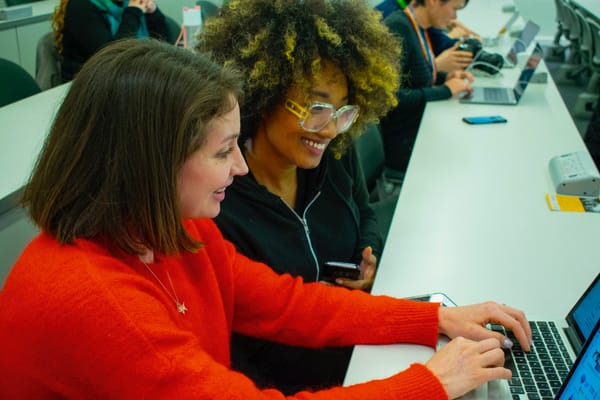Counselling Explained
The Under Pressure campaign, which aims to give students strategies for coping during periods of heightened stress, returns on 18th - 22nd March

Under Pressure, the Union campaign that gives students strategies for coping with heightened periods of stress, is back from 18th March – 22nd March so look out for events and stalls across campus. It also marks a good time to address the counselling service.
Everyone has seen films where someone goes to a counsellor or a therapist and lies on a couch and tells their story. The therapist asks “And how do you feel about that?” before “fixing” the individual who then skips out of the room, to find the love of their life and live happily ever after. With images like this floating around it can be difficult to really understand what counselling is; so what is counselling and what does it mean for you and other students at Imperial?
Counselling is a confidential and non-judgemental space in which thoughts, feelings and behaviours are explored and focused on at your own pace. The aim is to bring a greater understanding of current difficulties and identify themes or patterns that you would like to change. You can expect a counsellor to give you time and space to talk about your thoughts. You can expect them to ask questions and together you’ll think about what difficulties you’re having and talk about alternative perspectives of situations. Counsellors will talk with you about what you want to change and together you will look at mechanisms to change your behaviour and thoughts.
Counselling is not giving advice or attempting to sort out the problems of a student, it doesn’t give a diagnosis or treatment. Counsellors don’t expect a student to behave in any particular way and they won’t get emotionally involved with the student. Counselling will not give you answers and fix the problem. Instead you work together to understand the difficulties and talk about strategies to change this.
Sometimes it can be difficult to see what a counsellor actually does. Counsellors are trained to listen so that they listen to what is being said but also the underlying subtleties. They can identify patterns, themes or feelings. Counsellors don’t judge and they want to help you understand. Counsellors are particularly valuable because humans are relational creatures and they are meant to interact with other people and form a variety of relationships. This means during times of stress we need a relational approach. Talking to someone who listens and helps us to understand our feelings, thoughts and behaviours. People often prefer to speak to counsellors than family, friends, lecturers or personal tutors. They aren’t biased and they won’t judge you. They won’t get emotionally involved, which family and friends tend to, but they do care. They bring a level of support and understanding that these other people can’t bring.
Counselling can be a painful experience for some people and while it can be incredibly effective at helping people understand thoughts and behaviours, it can bring about different emotions in different individuals. For many people counselling means letting go of thoughts or behaviours and that can be really difficult. This is normal and everyone who visits the counselling service should expect a very personal experience from the sessions they attend.
This is not to say that counselling doesn’t massively help people. Most students that use the counselling service find it hugely beneficial to have that time to talk and think. It allows them to cope with their daily life and study effectively. They go on to achieve the grades they want to and participate in all the activities that they wish to. Counselling really can make a huge difference to your life and I encourage you to reach out if you need support.
In fact, I should address the importance of asking for help. Asking for help does not make you weak; it is one of the strongest things you can do. As a child we are often taught to do it by ourselves: eating, getting dressed and brushing your teeth. When learning how to do these things, someone guided you, told you how to do it and helped you when you struggled. At university there are further pressures to do things yourself: washing clothes, cooking, cleaning and studying. It is still fine to ask for help with these things. Speaking to friends, family, tutors and support services may seem like a huge step but it is so important and will make a huge difference to your life.
Counselling at Imperial
While this explains counselling in general it can be useful to understand what happens at the counselling service at Imperial. The counselling service offers short term therapy, meaning a limited number of sessions over a short period of time. This is for two reasons. Firstly, short term therapy can be particularly effective for the demographic at university. This is because counselling can require people to be accepting of change and open minded towards alternative perspectives of a situation. Students at university are already experiencing a lot of change. This means they can accept change more willingly which can make it particularly effective. The other reason that short term therapy is offered is to ensure there is provision for all students at Imperial.
The service has also changed the way they offer appointments. The initial appointment is a therapeutic consultation that is up to 75 minutes. This session will give you time to talk about your concerns and think together about what your needs are. You’ll decide together if counselling is the best option or be signposted to a service that suits your needs more. You may decide together some strategies that you can use before your next session. You will then get three ongoing appointments that last for 50 minutes. After this you will decide together how best to use your remaining four sessions. You may decide to leave them until later on in the year for stressful periods, for example scheduling them to be just before exams.
Counselling services integrated into higher education are becoming increasingly oversubscribed and are being found to have long waiting times. This can be detrimental to students who need access to that support but in some ways it’s an indication that the stigma of mental health is being reduced and students are aware of their mental health and thinking about ways to support it. To everyone that reaches out to the counselling service I’m really proud of you, it can be a huge step to recognise that you need help and then to actually seek it as well is fantastic.
Particularly when there are long waiting times it can be worth thinking about alternatives that may provide some support. Cognitive behavioural therapy (CBT) can be accessed through the NHS. CBT largely looks at how you process information, how it is stored, used and how it affects behaviours and emotions. It doesn’t address how you interact with other people which can sometimes be a useful factor to consider. Speak to your GP or visit the Health Centre as they can direct you to that service. The NHS also offer IAPT (Improving Access to Psychological Therapies) which can have shorter waiting times and can be easy to access. It can be really useful and is worth exploring.
Another useful tool is Mindfulness. Mindfulness teaches you to pay attention to the present moment though breathing and meditation practices. Everyone benefits from Mindfulness but it can particularly help if you feel stressed or overwhelmed, are struggling to concentrate or are feeling like a failure. It can help you manage your thoughts so you can accept them and disengage from negative thinking or worrying. The Chaplaincy offers sessions on Mindfulness which can help you learn about the practice. This is not just for students who identify with a religion or faith.
Unlike many other universities across the UK, College has backed the counselling service and has put extra funding into the service in order to increase the staff resources. Staff numbers will be increased throughout the academic year which should have an impact on the waiting times. This is taking longer than it should have due to limited space, but the service is doing all that it can to see as many students as possible and cut the waiting times down. It’s massively frustrating for students not to have access to this service because there is not enough space for them to use. The service has the resources to expand but the College has not provided the space and this is unacceptable. Wellbeing should be everyone’s problem so this is a call to College to find the counselling service the space so that students can access the support they need.
College also needs to understand the impact a fully functioning service can have on the student body as a whole. More funding would give more capabilities for group sessions and workshops to get students thinking about their mental health early on. Wellbeing should be incorporated into the curriculum so that all students learn about it, are aware of it and can put coping mechanisms in place should they experience difficulties.






